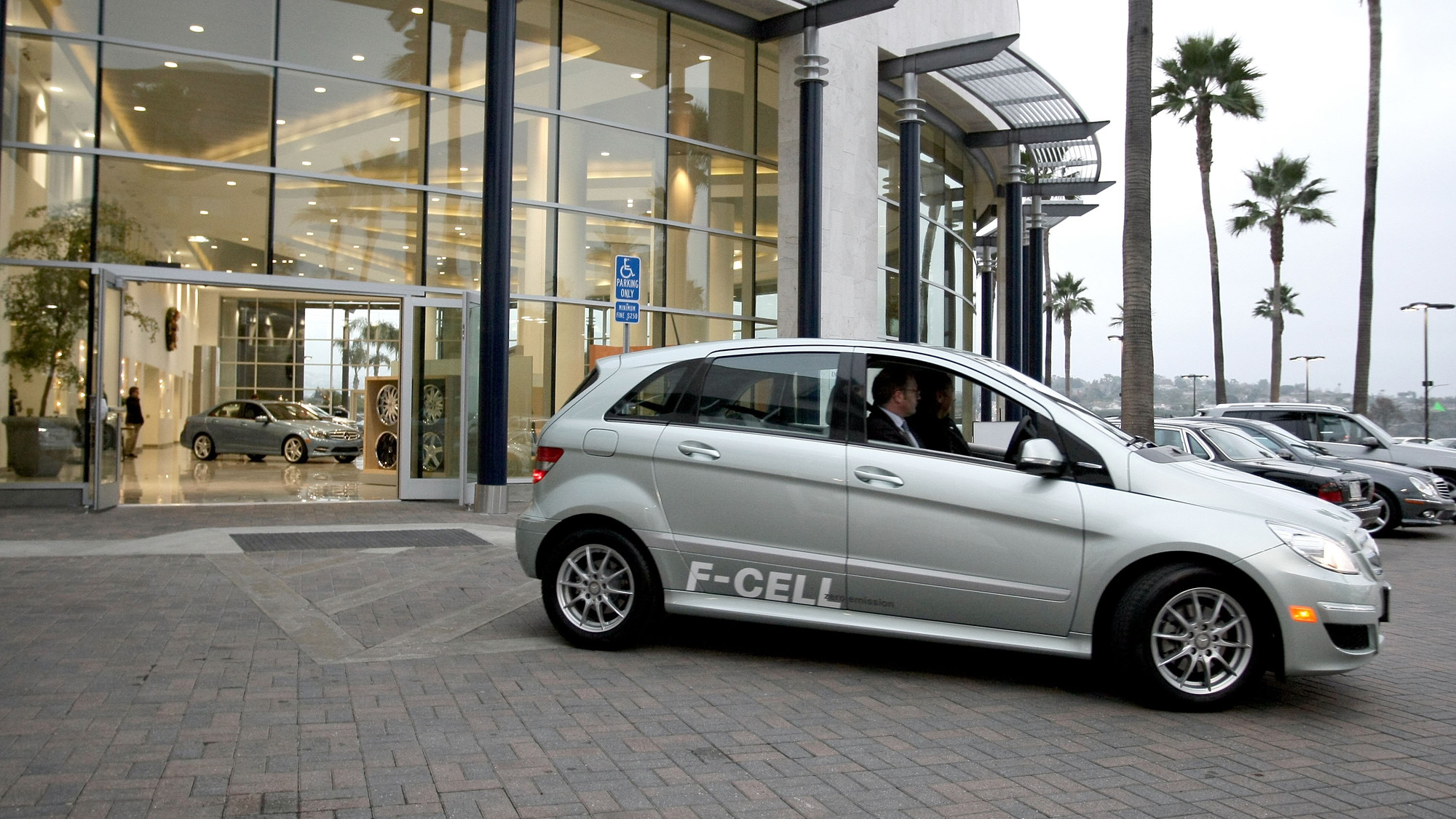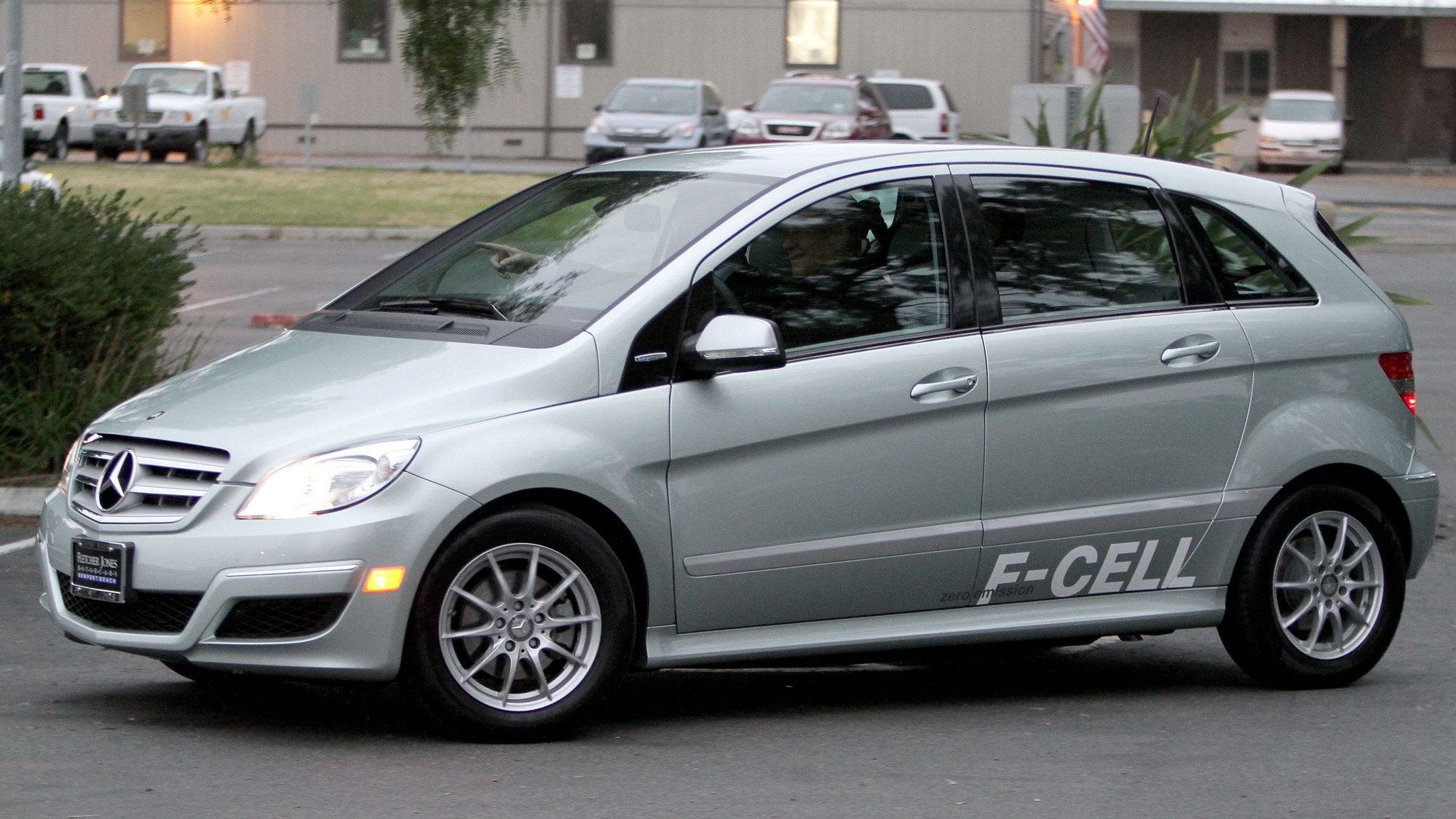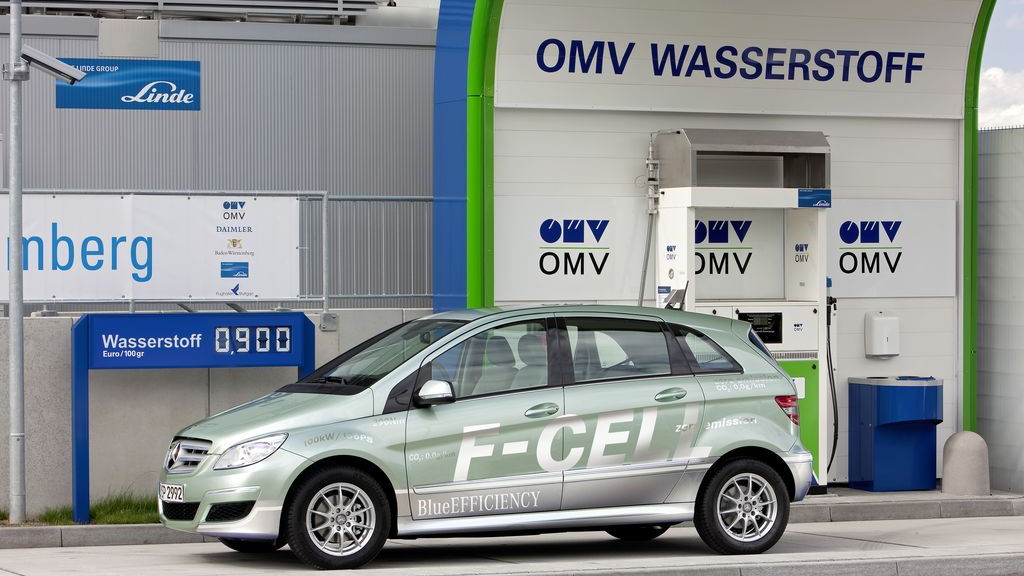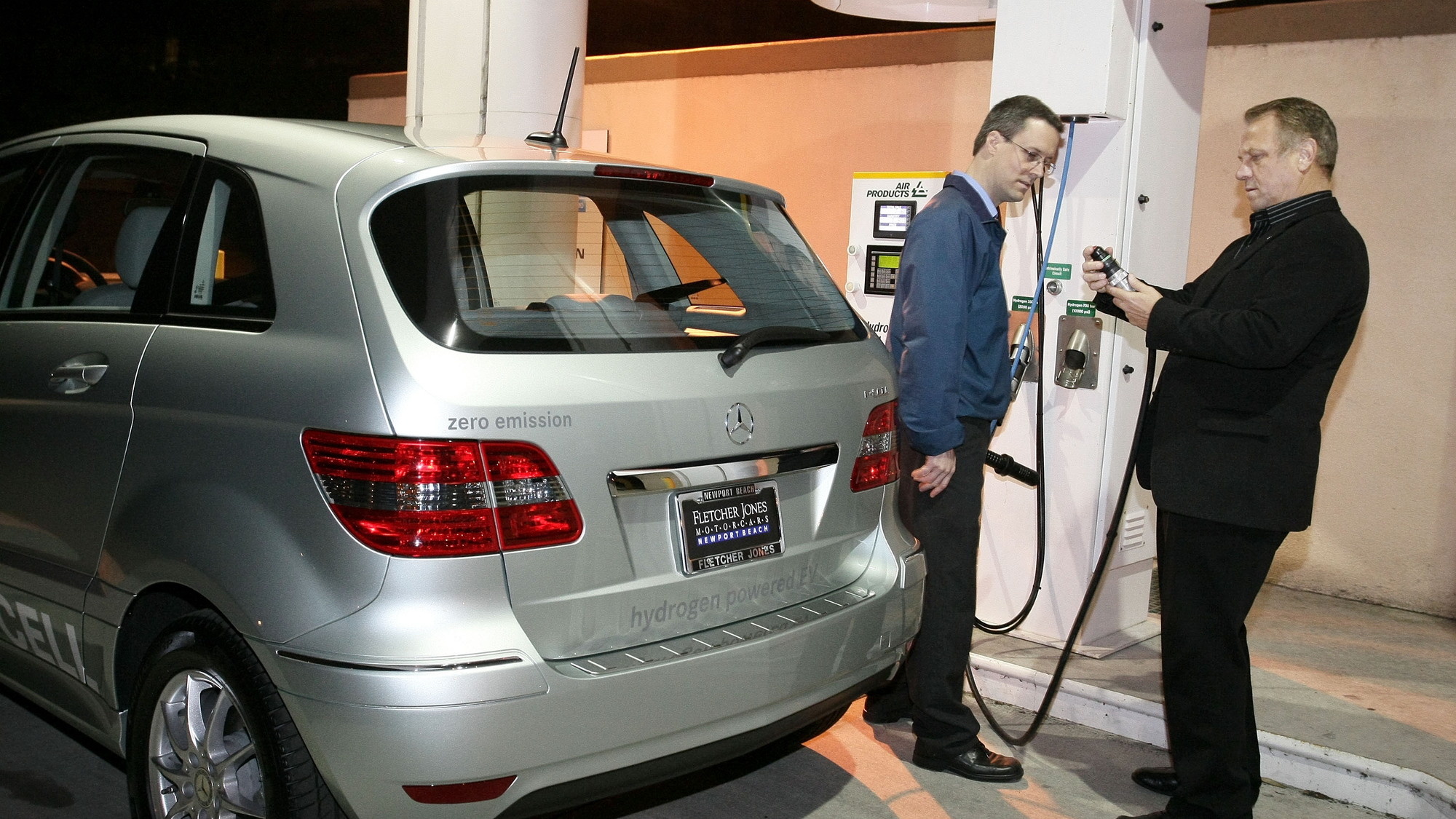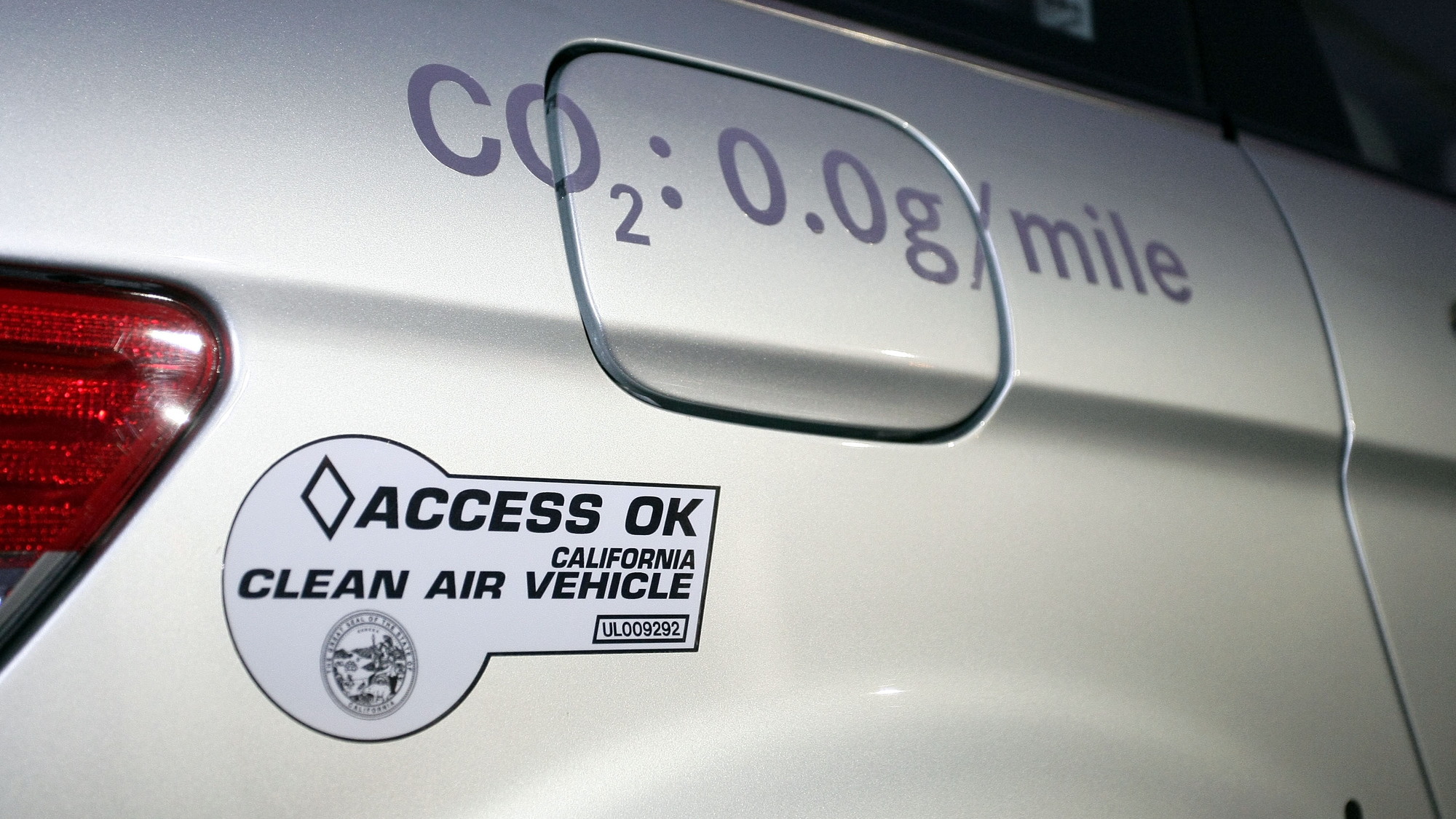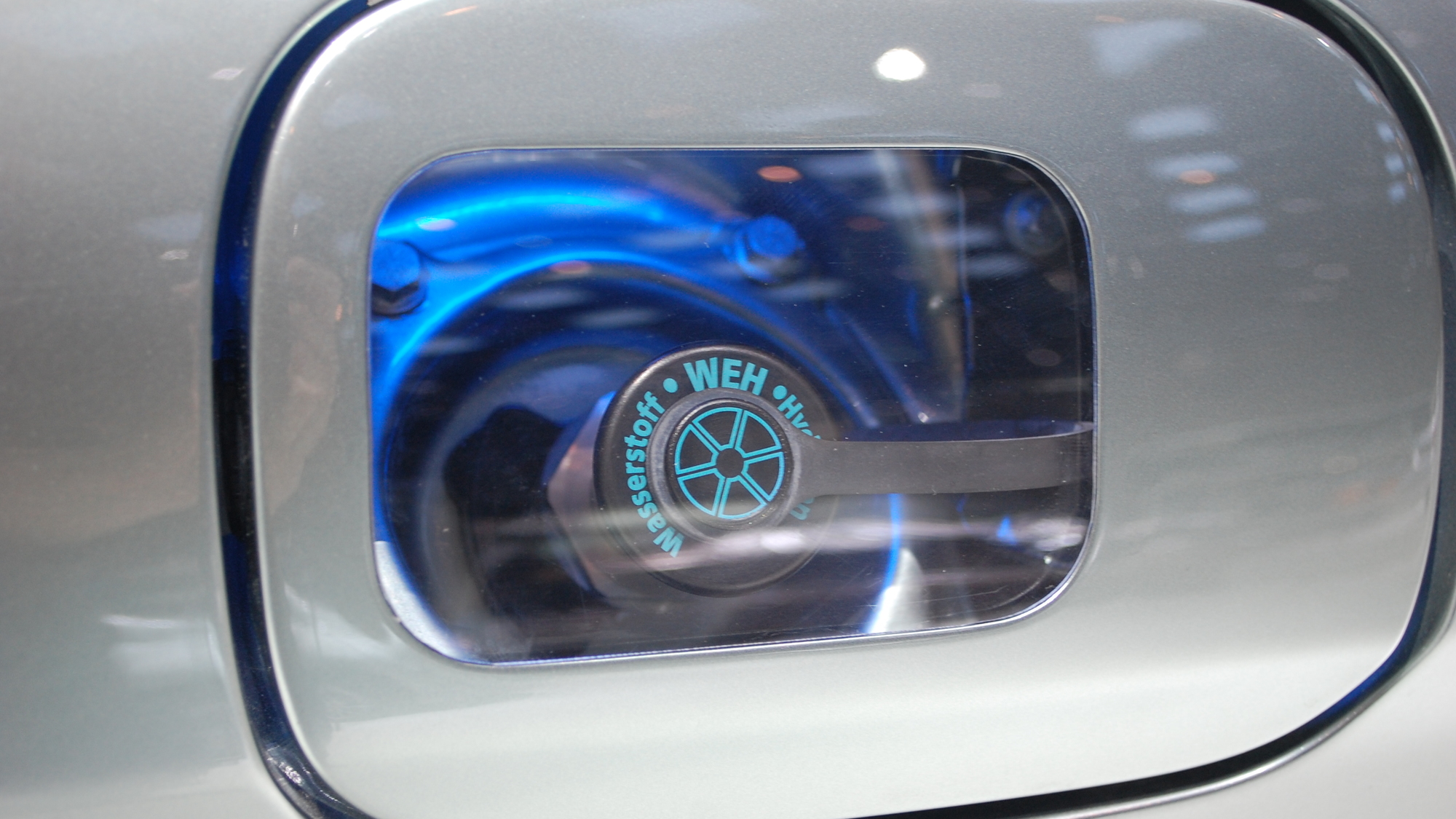According to Automotive News (subscription required), Mercedes will launch not one but two hydrogen fuel cell vehicles in the coming years, and the second model is likely to be one of its large sedan or SUV models.
The latest information was revealed by Sascha Simon, the product planner for Mercedes-Benz USA, who also said that the cars will be offered to customers in California initially, and eventually New York, New Jersey and Connecticut pending the availability of a suitable refueling network.
That first vehicle will be based on the latest-generation Mercedes-Benz B Class. We previously reported that Mercedes will launch a range-extended electric version of its B Class in the U.S., and it’s possible that the automaker may use a hydrogen fuel cell as the range-extender.
A concept vehicle dubbed the F125! and powered by a hydrogen fuel cell range-extended electric drivetrain was unveiled by the automaker last year and promised a driving range of up to 620 miles together with 0-60 mph acceleration in just 4.9 seconds and a top speed of 136 mph.
Mercedes-Benz is already leasing a fleet of its previous-generation B Class hydrogen fuel cell models and last year took three of them on a global drive program. The amazing reliability of the vehicles proved that the technology was ready for the mass-market so now Mercedes is accelerating plans to launch a high-volume model, bringing forward the launch date from 2015 to 2014.
The automaker does acknowledge that a comprehensive network of hydrogen filling stations still has to be set up before zero-emission driving can become a widespread reality. To make this possible, it is cooperating with government authorities, energy utilities and oil companies in joint projects in places such as Hamburg, Stuttgart and California to help roll out hydrogen infrastructure.
